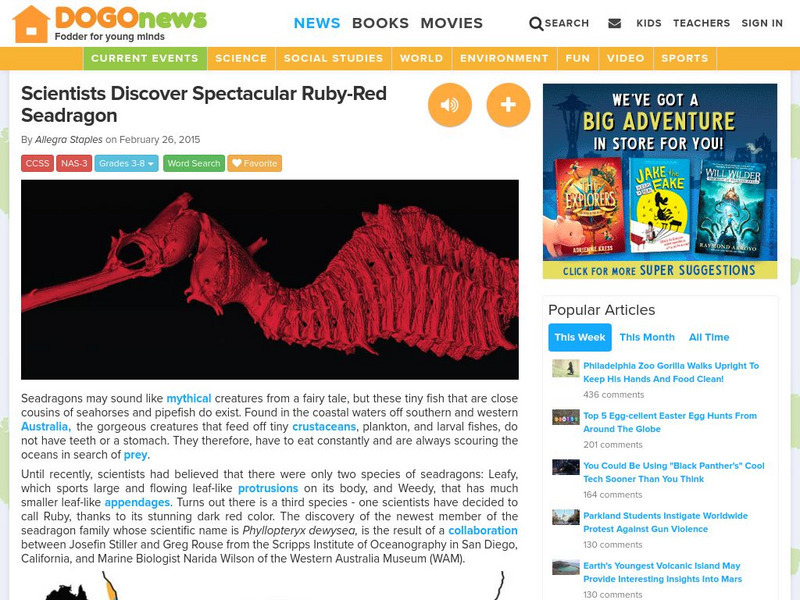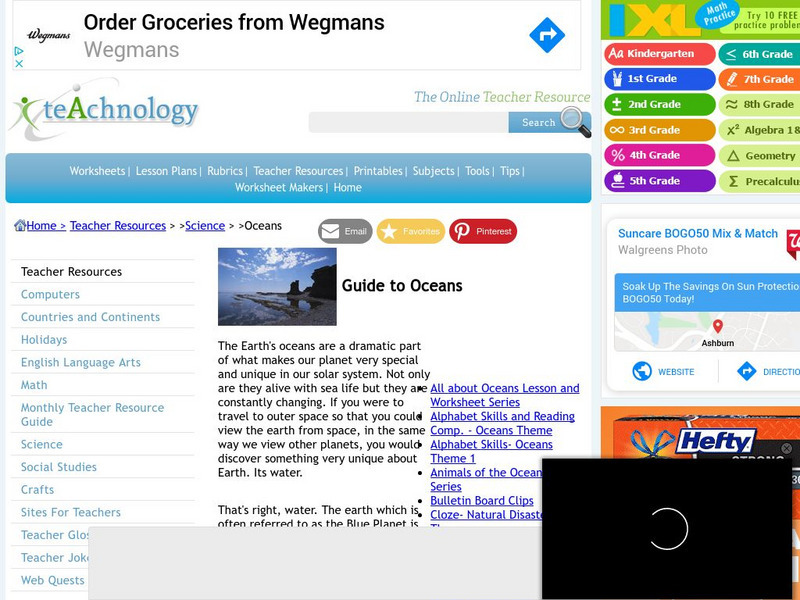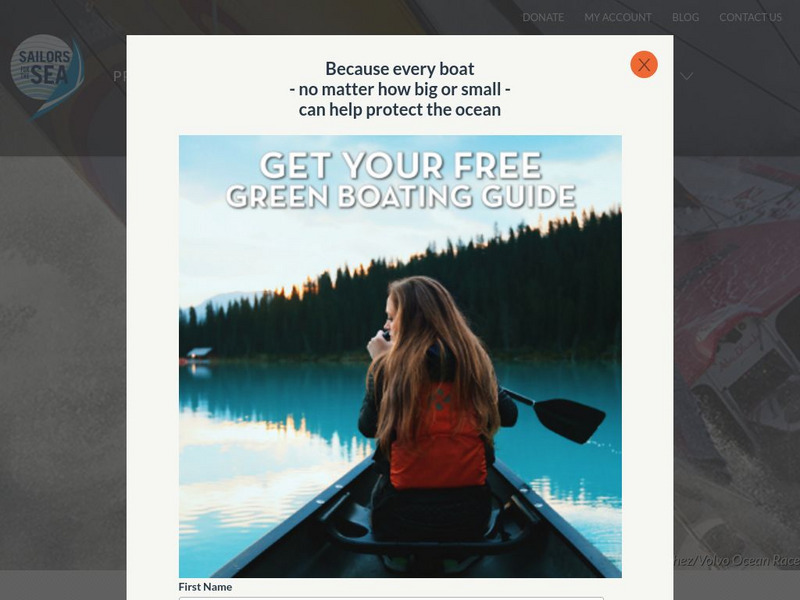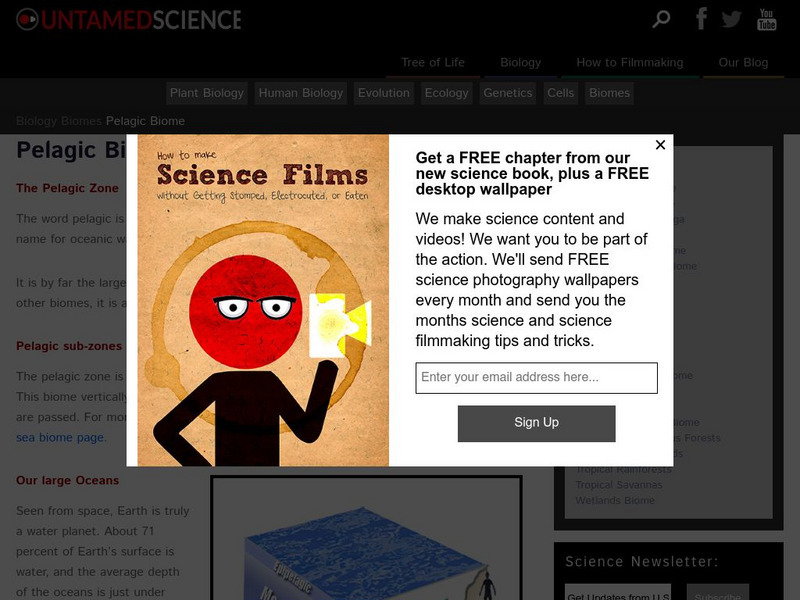TED Talks
Ted: Ted Ed: Sylvia Earle's Ted Prize Wish to Protect Our Oceans
What's been happening to the world's oceans over the past 50 years? Ocean researcher, Sylvia Earle, shares breathtaking images of the ocean and surprising details about the many problems plaguing its health. [18:12]
Science Buddies
Science Buddies: Swimming in Acid: Understanding Ocean Acidification
The oceans are a precious natural resource, part of Earth's carbon cycle. But what happens if the oceans absorb too much carbon dioxide? Many scientists are concerned that the increased absorption of carbon dioxide is causing them to...
Simon Fraser University
Chem1 Virtual Textbook: The Hydrosphere and the Oceans
As part of the General Chemistry Virtual Textbook, this site examines a variety of topics related to the hydrosphere and the oceans. Topics covered include where the water came from, the hydrologic cycle, Oceanic circulation, atmospheric...
Missouri Botanical Garden
Missouri Botanical Garden: What's It Like Where You Live? (Oceans)
This site contains a wealth of information. You can click on shorelines, temperate oceans and tropical oceans. Each page contains links to even more information.
Smithsonian Institution
Smithsonian: Ocean Planet: Interdisciplinary Marine Science Activities
Smithsonian Institution presents ?Ocean Planet: Interdisciplinary Marine Science Activities?. Through this series of six interdisciplinary lessons, students will look at such things as the organisms in different marine ecosystems, the...
American Institute of Biological Sciences
Action Bioscience: America's Oceans in Crisis
Discover some of the current problems within our oceans and how those problems could affect life on Earth.
Society for Science and the Public
Science News for Students: Ocean Animals Have Mushroomed in Size
Article reports on the increasing size of ocean animals over the millenia. Includes a list of key vocabulary.
Encyclopedia of Earth
Encyclopedia of Earth: Arctic Ocean
Lengthy illustrated article about the Arctic Ocean discusses all the many features and characteristics of this vast northern ocean--sea ice, icebergs, ice shelves, ice islands, the Arctic Ocean floor, continental shelf--as well as the...
University of California
Ucmp: The World's Biomes
This is an introduction to the major biomes on Earth. This page groups biomes into five major types: aquatic, deserts, forests, grasslands, and tundra. Information on climate, animal/plant life, and much more is given for each of type...
SEDL
Oceans [Pdf]
This large PDF file integrates math, science, and language into several lessons about characteristics of the oceans. Topics include ocean currents, tides, density, marine life, and pollution.
Other
Rutgers: c.o.o.l. Class: Physics Project: Plankton and Ocean Current
This c.o.o.l. Project focuses on tiny sea plankton and how they move in the oceans. Follow the scientific process outlined on the left, calculate and collect data to form your own predictions.
Other
Rutgers: c.o.o.l. Class: Biology Project: Gone Fishing
In this C.o.o.l. project, you are given a task to complete. You will predict where fish should be found in a specific region.Follow the steps of the scientific process outlined on the left menu bar. Useful educational tool for both...
NOAA
Noaa: National Ocean Service: Education: Tides and Water Levels
A great resource for explaining and understanding tides. Find out what tides are and why it is so important to monitor them. This is an extensive tutorial followed by a set of review questions. All of the information can be downloaded as...
National Geographic
National Geographic: The World Ocean
A collection of four lessons where students look at the vital role oceans play in our lives, at the hydrosphere and the impact humans have on it, how humans use the oceans and who is responsible for protecting them, and the rationale...
DOGO Media
Dogo News: Scientists Discover Spectacular Ruby Red Seadragon
Read about the discovery of a seadragon. Includes video.
TeachEngineering
Teach Engineering: One World Ocean
In this activity, students learn about ocean currents and the difference between salt and fresh water. They use colored ice cubes to see how cold and warm water mix and how this mixing causes currents. Also, students learn how surface...
Texas Education Agency
Texas Gateway: Organisms and Environments: Humans and Ocean Systems
This tutorial overviews the ocean ecosystem and human's impact on it.
Texas A&M University
Ocean World: Bringing the Ocean to the Classroom
Online resource for students and teachers to see information on icebergs, fisheries, coral reefs, waves, currents and more. Provides teachers with learning activities. Has its own ask-an-expert site (Ask Dr. Bob), and provides real-time...
Teachnology
Teachnology: Oceans Teaching Theme
For any educator preparing a teaching theme/unit on oceans, this is the site for you! Included are links to a myriad of lesson plans, worksheets, hands on activities, web quests, interactive sites, teacher resources, and more.
Other
Sailors for the Sea: Protecting Our Oceans
Did you know that you can make a difference in keeping our oceans safe and beautiful? Become more knowledgeable about our oceans and the harm they face each day, including invasive species, overfishing and habitat alteration by perusing...
Annenberg Foundation
Annenberg Learner: Planet Earth
A series of seven instructional, hour-long videos presenting Earth-science topics such as plate tectonics, oceans, climate changes, natural resources, the Sun, and the future of our planet. Closed captioning option provided for each video.
Smithsonian Institution
National Museum of Natural History: Ocean Planet
Detailed website that was a companion to a 1995 traveling exhibit of the Smithsonian. Links to lesson plans and other educational materials are at the bottom of the page. Enter the exhibition to explore the world of the ocean.
NASA
Nasa: Sea Wi Fs Project: Teachers Resources
SeaWIFS refers to the Sea-viewing Wide Field-of-view Sensor, which is a satellite sensor that can monitor the color of the oceans and send data back to Earth. This page has a collection of scientific and educational resources on ocean...
Untamed Science
Untamed Science: Biology: World Biomes: Pelagic Biome
Learn about the different zones of the open ocean, the pelagic biome, and what organisms call each zone home.






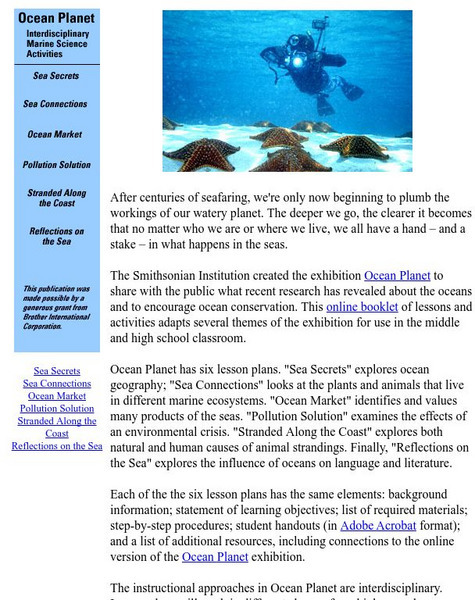


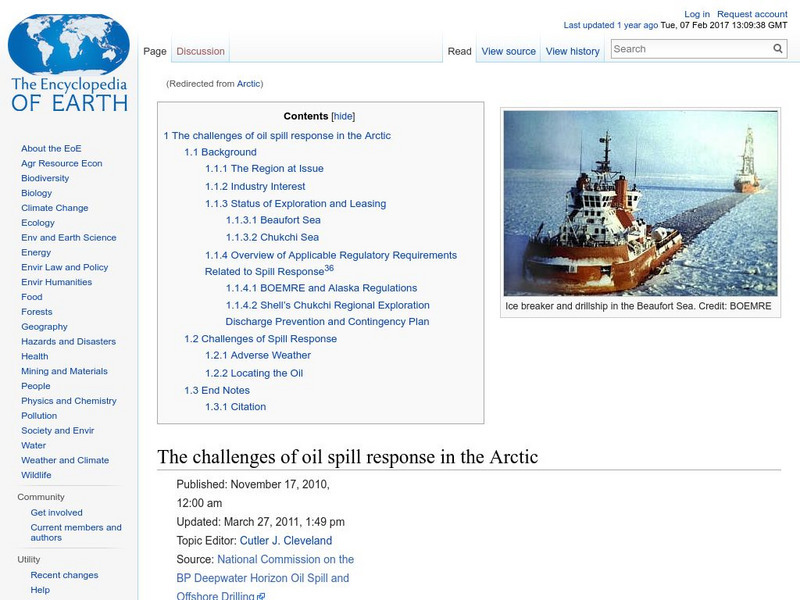

![Oceans [Pdf] Activity Oceans [Pdf] Activity](https://d15y2dacu3jp90.cloudfront.net/images/attachment_defaults/resource/large/FPO-knovation.png)



